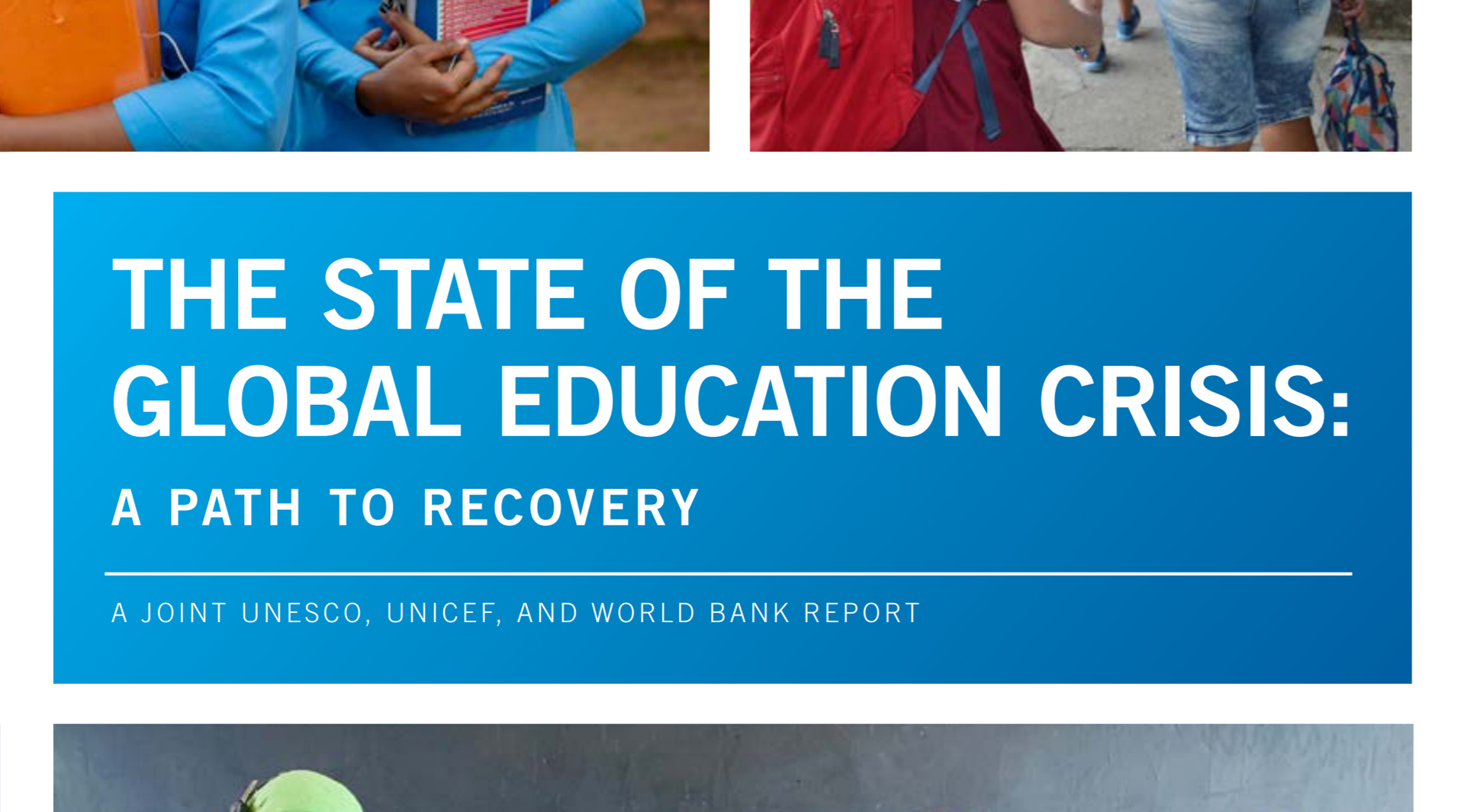The state of the global education crisis: A patch to recovery
 The State of the Global Education Crisis: A Path to Recovery provides a stark reality check for education systems worldwide and presents a menu of policy actions for recovering learning and using this crisis as an opportunity to reinvent education—to make it more resilient, more equitable, and more efficient in delivering learning for all. Published jointly by UNESCO, UNICEF, and the World Bank, the report takes stock of the state of education around the world after prolonged school closures that affected nearly all the world’s students and offers a set of recommendations for recovery. The paper presents updated global simulations of learning losses and a review of the evidence, to date, of actual measures of learning losses due to COVID-19.
The State of the Global Education Crisis: A Path to Recovery provides a stark reality check for education systems worldwide and presents a menu of policy actions for recovering learning and using this crisis as an opportunity to reinvent education—to make it more resilient, more equitable, and more efficient in delivering learning for all. Published jointly by UNESCO, UNICEF, and the World Bank, the report takes stock of the state of education around the world after prolonged school closures that affected nearly all the world’s students and offers a set of recommendations for recovery. The paper presents updated global simulations of learning losses and a review of the evidence, to date, of actual measures of learning losses due to COVID-19.
The global disruption to education caused by the COVID-19 pandemic is without parallel, and its effects on learning have been severe write the authors. The crisis brought education systems across the world to a halt, with school closures affecting more than 1.6 billion learners. While nearly every country in the world offered remote learning opportunities for students, the quality and reach of such initiatives varied greatly, and they were at best partial substitutes for in-person learning. Now, 21 months later, schools remain closed for millions of children and youth, and millions more are at risk of never returning to education. Growing evidence on the impacts of school closures on children’s learning depicts a harrowing reality. Learning losses have been large and inequitable.
Executive summary: Arabic | English | French | Portuguese | Spanish

